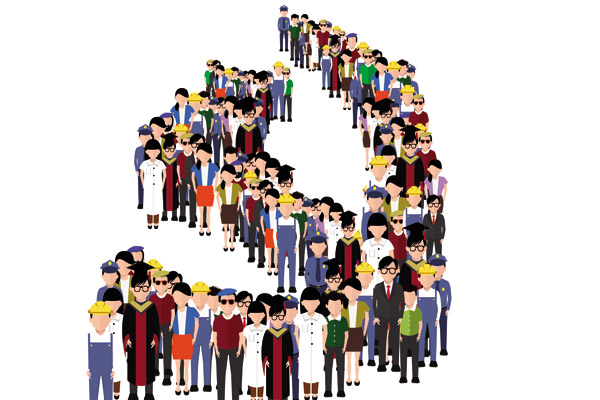CPC membership becomes more diverse
 0 Comment(s)
0 Comment(s) Print
Print E-mail China Daily, July 1, 2016
E-mail China Daily, July 1, 2016
In 1921, the Party had a mere 50 members, but now it has more than 88 million, resulting in higher standards and more applicants from a wide range of backgrounds.
 |
|
Photo by Jiang Jiahong / provided to China Daily |
Wen Qian feels that she is probably not a "typical" member of the Communist Party of China.
"In my opinion, a typical CPC member works for the government or at least a State-owned company, but I am a freelance worker," she said.
Since graduating in 2011, the 27-year-old ceramic artist has lived in Jingdezhen, the nation's ceramics capital, in Jiangxi province.
Because she doesn't have a danwei, or work unit, her membership was granted by the county-level Party organization in her home province of Jiangsu in East China.
People in China's artistic circles don't normally talk about politics, she said, adding that most of her friends don't know she's a Party member.
"My father has been maintaining my membership, including paying my membership dues. I have to be present at special times, such as the leadership transition, so I fly home to vote," she said.
Li Helin, deputy director of the Beijing Scientific Socialism Research Association, said that since the Party's founding in 1921, the membership has become more diverse, and more young people are joining, especially those with a high level of education or who work in industry.
Wen joined the CPC when she was a university freshman.
"Many students in my class applied, but only two or three out of 30 applicants were accepted in the first year," she said. "I was working in the student union. The others who were selected for membership were outstanding students."
The selection process was serious and intensely competitive. She had to produce reports about her studies and political ideas, including how she would use her knowledge to improve people's lives.
Wen's father and two older sisters are also CPC members. "They told me only the best can join," she said. "I was proud to be selected. It wasn't easy."
Rising level of education
In 1982, only 4 percent of the more than 4,000 county-level Party heads held bachelor's degrees or higher.
By the end of last year, 14.4 percent of the more than 500,000 Party village heads had been educated to undergraduate level or higher. Moreover, 44.3 percent of the Party's members have a bachelor's degree or higher, a rise from 30.7 percent in 2006, while the number of members age 35 and younger was 25.4 percent. In 2006, the number was 23.3 percent.
According to a report published on Thursday by the State Council Information Office, the proportion of female members has grown to 25.1 percent, from 19.7 percent in 2006.
Last year, the number of applications was 22.2 million, but "the selection process was stricter", and although the membership growth rate fell by 0.2 percent, the quality of applicants has risen and become more diverse, the report said.
Chen Chunhua joined the CPC as an 18-year-old high school student. She attended a university in China before studying political science in the United States, where she gained a master's degree and was awarded a doctorate this year.
"I didn't ask, but I believe that many of the Chinese students on campus when I was studying for my PhD in the US were Party members," she said. "That's because membership is usually given to outstanding people, who are more likely to have the opportunity to undertake higher education or study abroad."
Of the 800 students in her grade in high school, only two have been accepted as Party members, she said.
Beyond stereotypes
Chen said few of the non-Chinese people she met in the US knew much about the CPC, but even when they knew about her membership, she wasn't seen as a stereotypical "red communist".
"Most people were just curious, asking why I joined the CPC and whether I believed in the Party's ideology," she said. "Overall, my political choices didn't affect my life and study in the US."
Yu Mingcheng, a 33-year-old nurse at a hospital in Sichuan province, said joining the CPC brings no direct benefit. On the contrary, it means shouldering more responsibility.
He said CPC members are expected to be role models and to contribute to the community through volunteer work and donations to special causes and funds.
"Being selected means you are doing a good job and are distinguished among your peers. It is a badge of honor. I think that's why people from different fields want to join the CPC," he said.
Li said the growth of the CPC is one of the reasons for the diverse membership. By the end of last year, membership had risen to 88.76 million from just 50 in 1921.
"It is reasonable for such a large political party to have members from different backgrounds," Li said. "Diversity brings vitality to the Party and also presents challenges for the management of the world's biggest ruling party."






Go to Forum >>0 Comment(s)